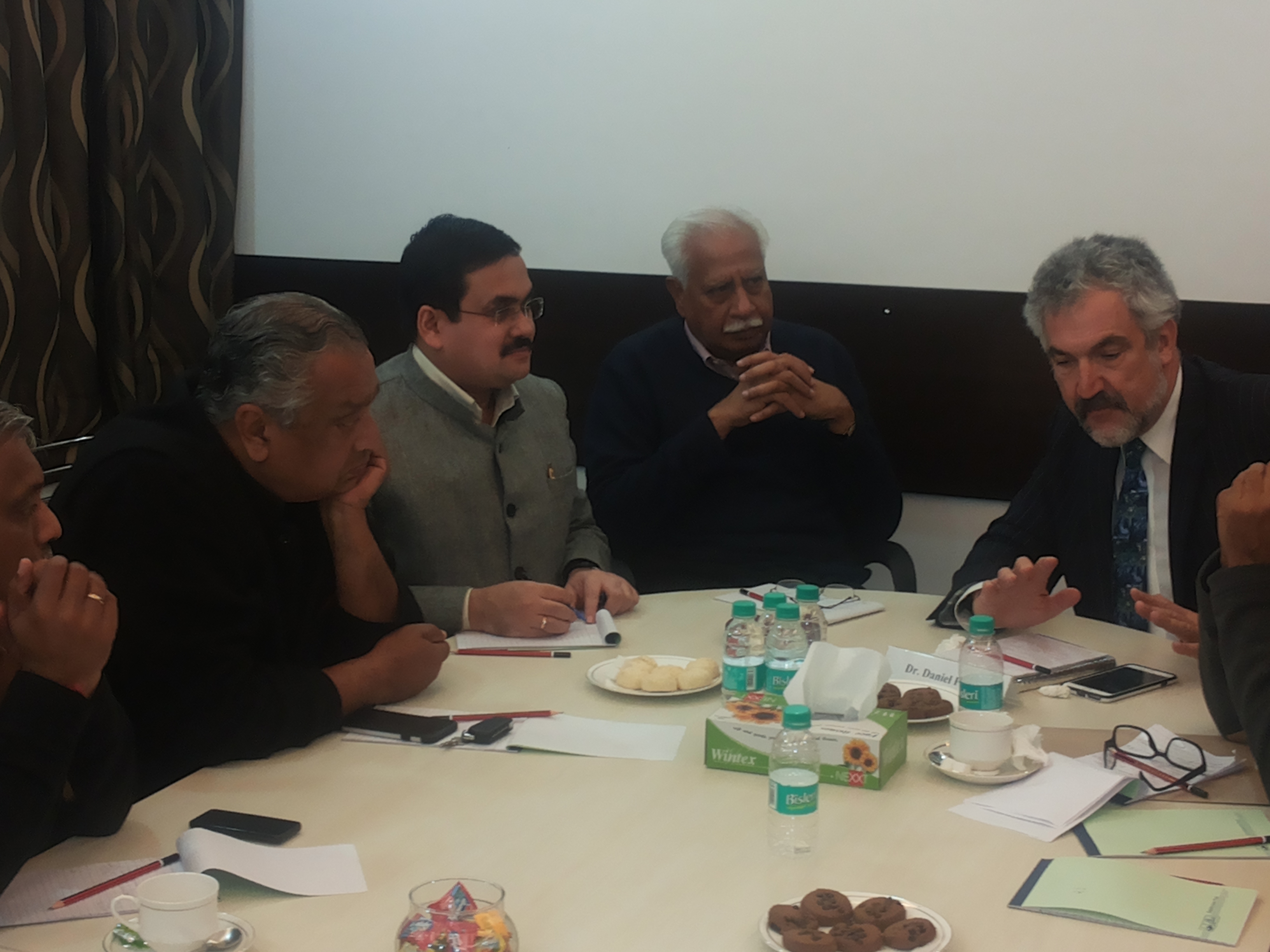By Rajesh Singh
- Noted West Asia expert and president of Middle East Forum Daniel Pipes has said that there were many moderate voices among the Muslim clerics in India who opposed radical Islam but that they were not too effective. “My sense is that they are not doing enough” to get their viewpoints across, he remarked. He said that he met several Muslim religious leaders during his visits to India and was “impressed” by their clear rejection of violence, which terrorists across the world unleashed in the name of Islam.Pipes was speaking at an interaction organised by the Dr Syama Prasad Mookerjee Research Foundation on Monday. He said the clerics should be reaching out more aggressively to their community members to counter the hate campaign, which the Islamists have been spreading across. “The moderate Muslim leadership in India is not creative enough,” he stated. They did not use social media effectively, for instance, to spread the right message of Islam and negate the stuff that Islamic radicals were promoting to lure recruits and justify their violent acts.Pipes noted that Indian Muslim clerics, although well-meaning, were not “exciting” people and thus losing out to the belligerence of terror-believing Islamists. He believed that the moderate voices need to be encouraged through think-tanks and the mainstream media as well.The West Asia expert said that in India, as in the rest of the world, moderate Muslims condemn all acts of terror unequivocally. “But it’s not enough to condemn the acts; it’s the ideology and the ideas of terrorists (through the misuse of Islam) that have to be condemned and countered. Unfortunately, that’s not happening enough”, he observed.
The US-based expert, who has lectured at universities, is a historian and political commentator and was for a while part of the US Institute of Peace during George W Bush’s tenure as President, rubbished the perception that Muslim youth were taking to arms due to reasons of poverty or illiteracy. He pointed out that in India, as elsewhere, the new terror recruit was more often the educated Muslim – doctor, engineer, software expert, academic. It was wrong to say, he added, that these people have been brainwashed from the beginning into believing in the radical form of Islam.
“They are free-thinkers, though of the bad kind”, he commented and added that the new converts to terrorism “are not Imams or experts on Quran” but believe in violence because of a distorted sense of Islam that they nurture. “They – some of them are women (even pregnant women) – decide to blow themselves up, and blow up places and other people.”
He said that radical Islam was the third dangerous ideology the world faced, “after Fascism and Communism”. Pipes remarked, “It’s certainly not a revolutionary movement of the poor but that of the educated… It’s to do with the Ummah – what to do for their ones in society.”
Pipes said Islamophobia was a wrongly-used word to describe hate-campaigns against Muslims across the world, especially every time a fresh terror attack happened. “There is plenty of Islamophobia, but I would not like to use the term, ‘Islamophobia’. I think ‘anti-Islam’ is the right world.” Dismissing criticism by his opponents that he was anti-Islam, he said, “I am not anti-Islam. Remember, Islamic radicals accuse even moderate Muslims of being anti-Islam.” He emphasised that “radical Islam” was the problem and “moderate Islam” was the solution. Sadly, he added, the moderates did not “have money or media support, and so they are less heard”.


